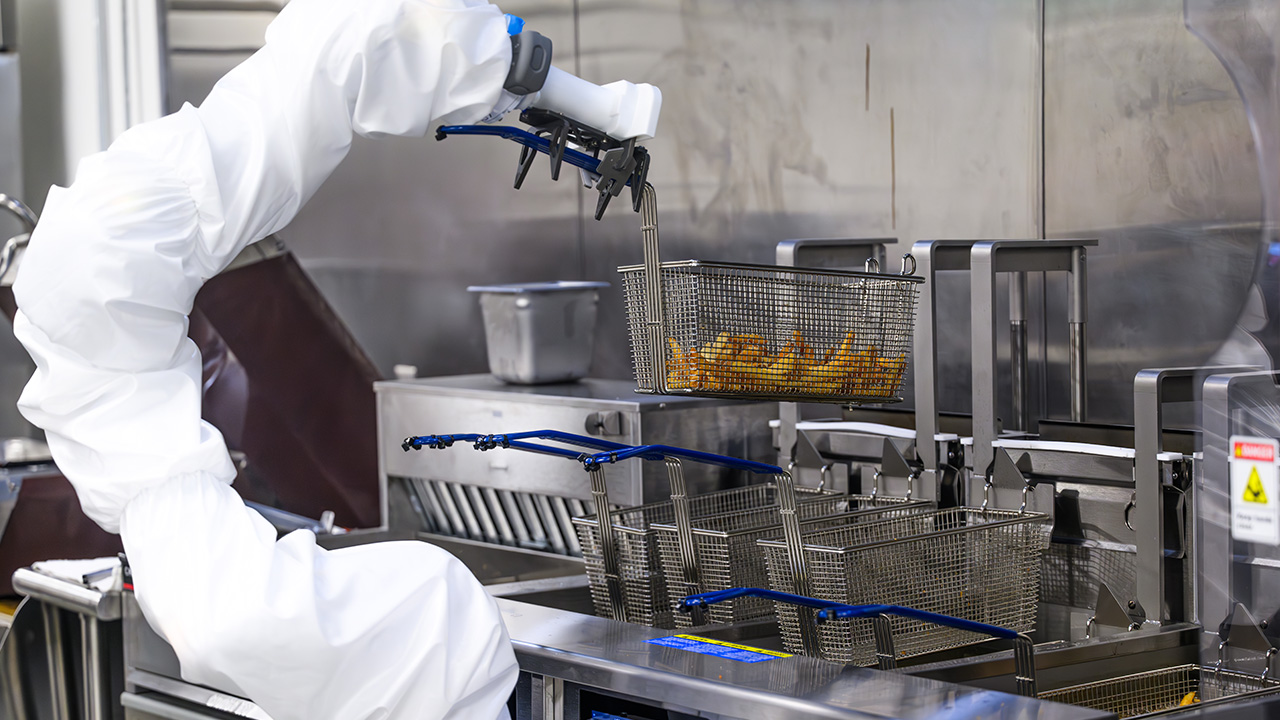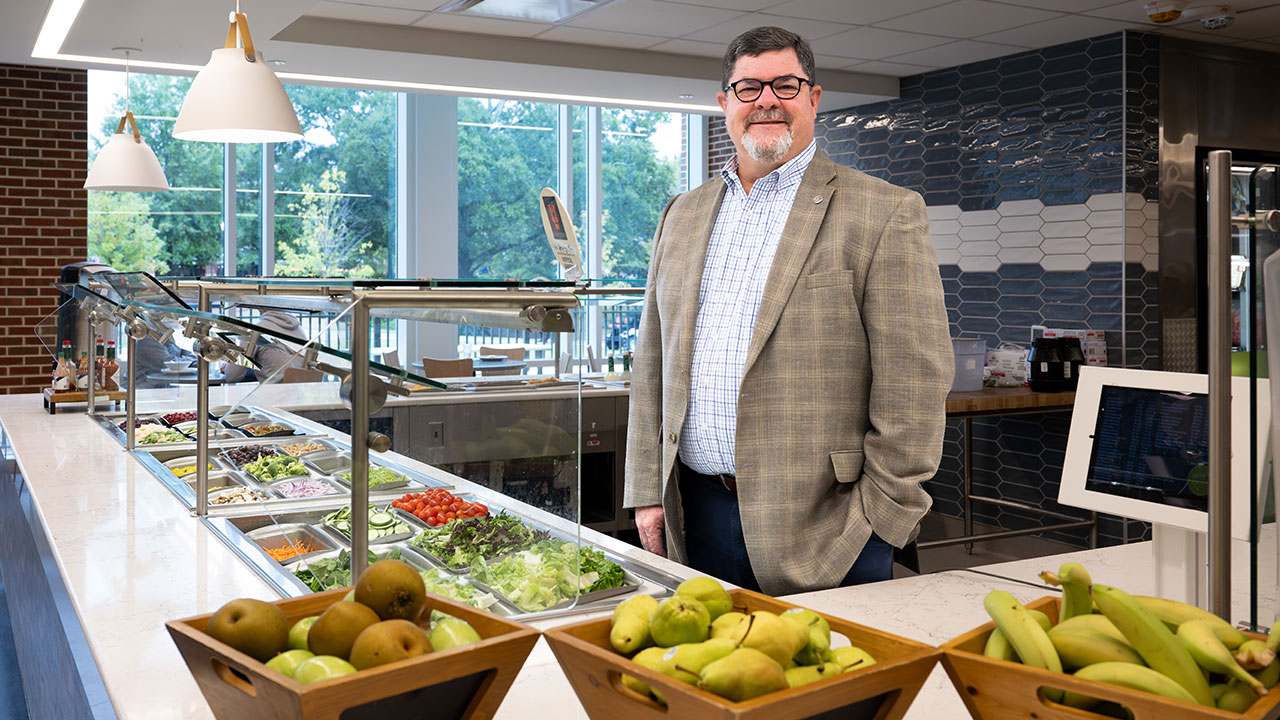content body
In a world where science fiction is slowly becoming a reality, and technology such as food delivery robots, self-driving cars and smart houses are no longer merely the stuff of novels and cliché movies, there seems no way to avoid the inevitable.
The robots are taking over, but you know what they say, “If you can’t beat ‘em, join ‘em.” At least, that is Auburn University’s stance on the matter.
On the first day of classes this semester, Tiger Dining introduced “Foy on the Fly,” a new food service location available via the Grubhub mobile app, featuring a robotic fry cook helping humans avoid the hot and unwelcome parts of the operation.

At Foy on the Fly, each lunch is packaged in a brightly colored green ReusePass box.
Named by students, "CAM the Frybot" has a robotic arm connected to a fryer, integrated with a freezer and a conveyor that sends frozen food to a hopper to be dumped into a fryer basket. The robotic arm then takes over and handles baskets of fries, cheese sticks, and chicken tenders.
The kitchen also features a grill press that cooks chicken and burgers faster and more consistently. The robot allows workers to avoid the unpleasantness associated with frying and focus on the personal touch needed to customize lunch orders.
“We use the term ‘co-robotics,’” said Glenn Loughridge, director of Campus Dining and Concessions. “When people hear the word ‘robot,’ they initially feel threatened — they think of a takeover. That’s not what this is at all.
“These machines need human input to tell it how much to cook — it needs consistent maintenance. The robot just reduces the “misery factor” of hot, heavy, repetitive jobs, making the food-making process easier and more efficient for our employees. Once the food is cooked, the workers are ready to build the boxes and send them on their way.”
Once prepared, the lunch boxes are placed into a food locker on the side of the kitchen window, built specifically to allow students to see the robot at work and observe the collaborative efforts between employees and machinery.
“It’s not only fun to watch, but there are also many potential academic intersects here,” Loughridge said. “Robotics in food service is just beginning to catch on, so there are plenty of opportunities for future innovation.
"We have partnerships with horticulture, culinary sciences, COSAM, Human Sciences and Engineering. We want to expose our students to emerging technologies and a more sustainable food system, an initiative we call 'Food U'. 'Food U' is all about the future of food — what will that look like and how will robotics play into that? These are critical conversations we’re hoping to facilitate among students.”
Though appearing to be the main attraction, Frybot is not the only innovative aspect of “Foy on the Fly,” nor the most eye-catching.
To increase sustainability efforts throughout campus, Auburn Campus Dining is implementing ReusePass, letting students check out and return reusable to-go boxes, reducing resource consumption and diverting single-use containers from landfills.
Each lunch is packaged in a brightly colored green box, distinguishing itself as a ReusePass container. Boxes are automatically checked out through the Grubhub app and attached to the student’s meal plan with every “Foy on the Fly” order.
Students “checking out” a ReusePass box are recommended to guard it with their lives or, at the very least, keep a watchful eye on it. If not returned within three days, they will be charged for the missing container.
“Reusable containers aren’t something we usually do in a retail environment,” Loughridge said. “However, because we have the dish return sector left over from an older dining hall that was once here at Foy, we thought it’d be an opportunity to reduce waste.
“We’ve tried this during COVID-19, and it didn’t go as well as we hoped, but we’re hoping this time — with the Grubhub reminders to return the boxes — that students will be encouraged to bring them back.”
The future of food seems limitless, with Tiger Dining at the forefront of food robotics and innovation. However, advancement is merely a byproduct of the university’s primary goal: enhancing the student experience and inspiring the next generation of innovators.
“Auburn University is a place of dreams and ideas,” Loughridge said. “We want students to dream big and think about the next revolution in their industry.
“CAM the Frybot may just be something cool a student sees while they grab lunch, or it could spark an idea or a conversation with a friend that leads to a business or career path. We have some bright students here — I have no doubt that a few will see it and have an idea that brings innovation to food service or some other field.”






